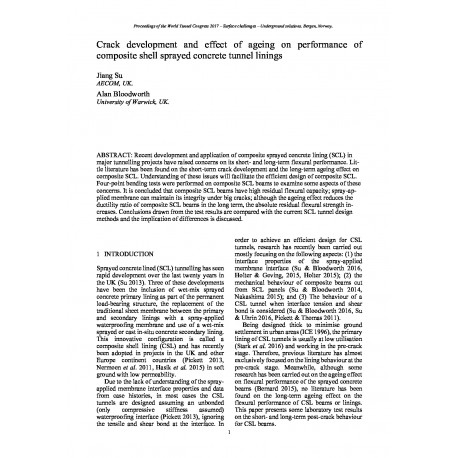Cart
0
0
No document
0,00 €
Total
Document successfully added to your shopping cart
Quantity
Total
There are 0 items in your cart.
There is 1 item in your cart.
Total documents
Total shipping
To be determined
Total
Search & filter
Search for a publication
Search & filter

Crack development and effect of ageing on performance of composite shell sprayed concrete tunnel linings
14655_crack_development_and_effe
Recent development and application of composite sprayed concrete lining (SCL) in major tunnelling projects have raised concerns on its short- and long-term flexural performance. Little literature has been found on the short-term crack development and the long-term ageing effect on composite SCL. Understanding of these issues will facilitate the efficient design of composite SCL. Four-point bending tests were performed on composite SCL beams to examine some aspects of these concerns. It is concluded that composite SCL beams have high residual flexural capacity; spray-applied membrane can maintain its integrity under big cracks; although the ageing effect reduces the ductility ratio of composite SCL beams in the long term, the absolute residual flexural strength increases. Conclusions drawn from the test results are compared with the current SCL tunnel design methods and the implication of differences is discussed.


